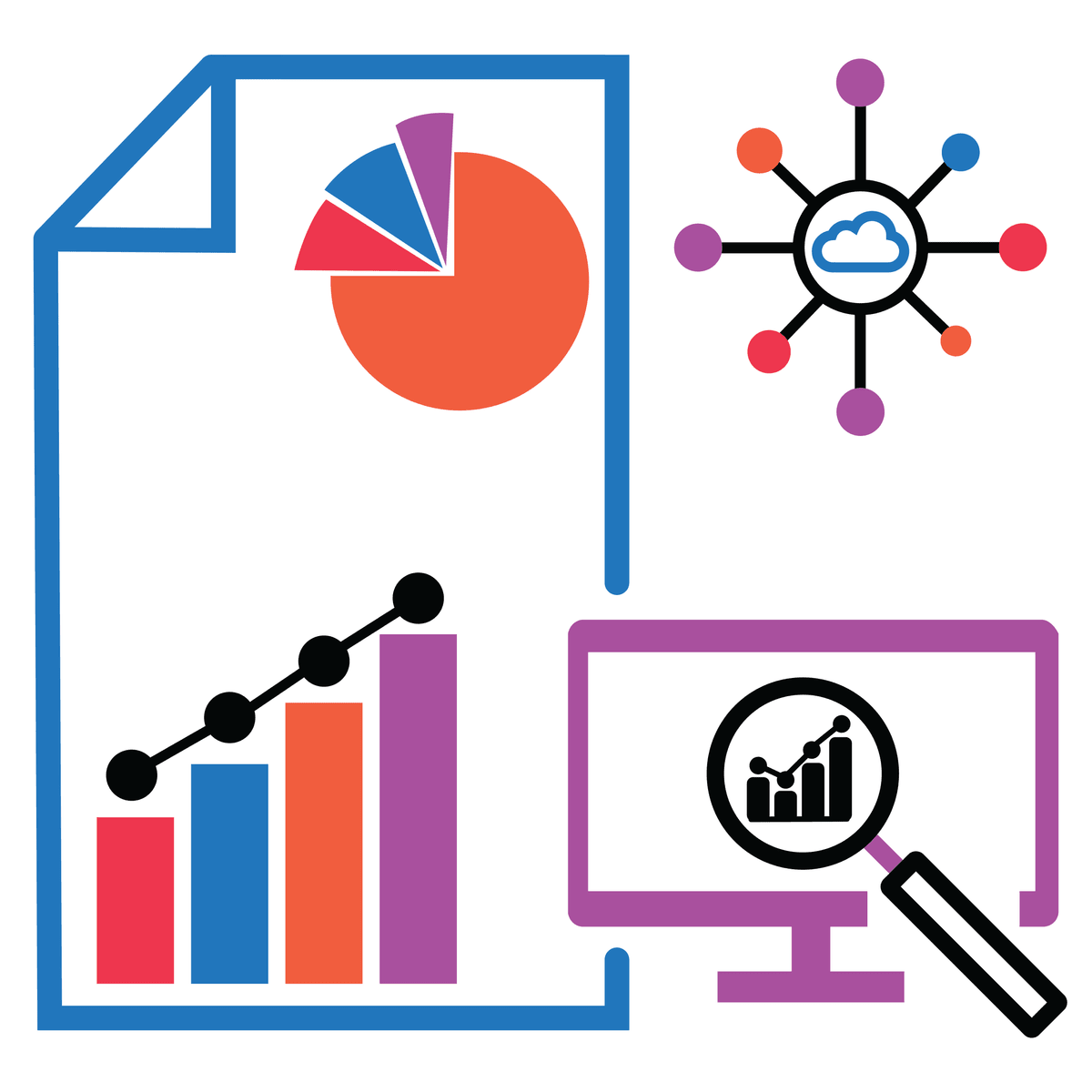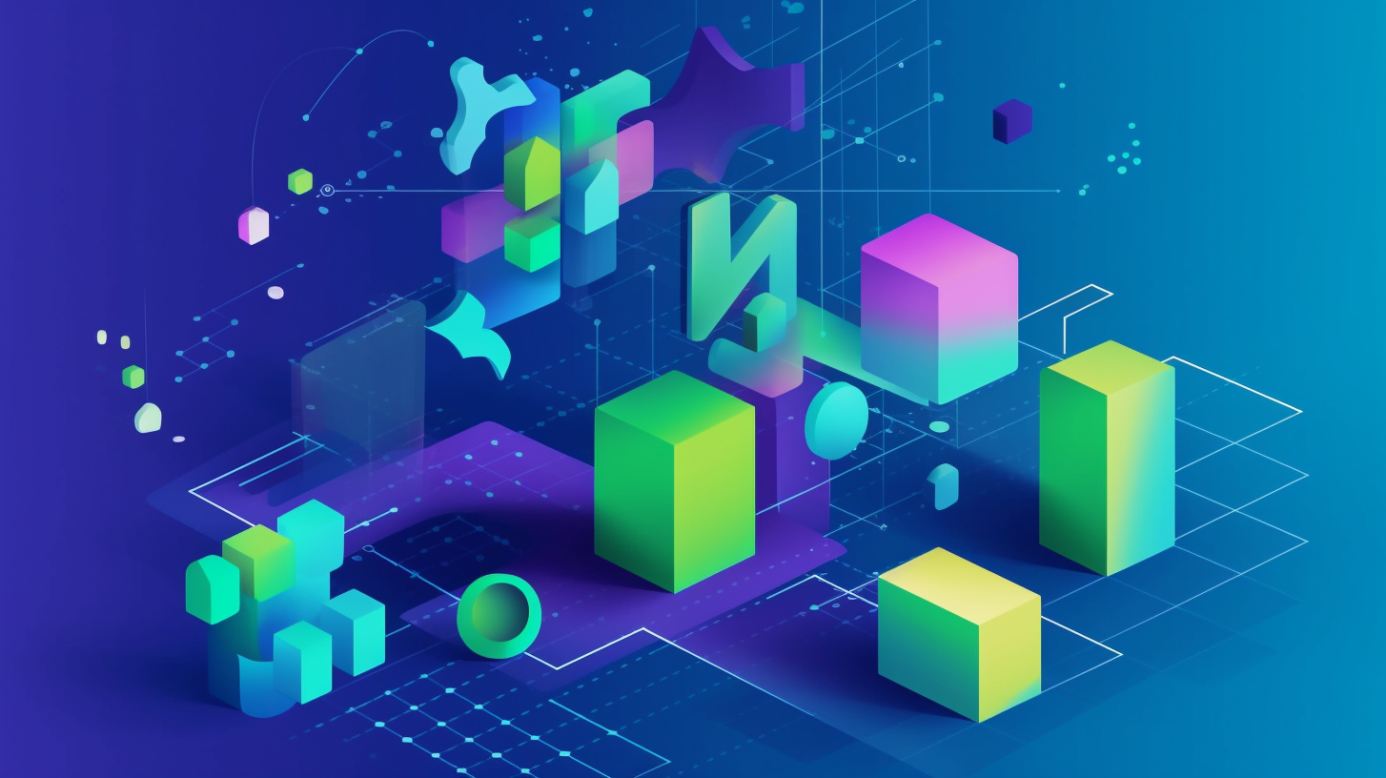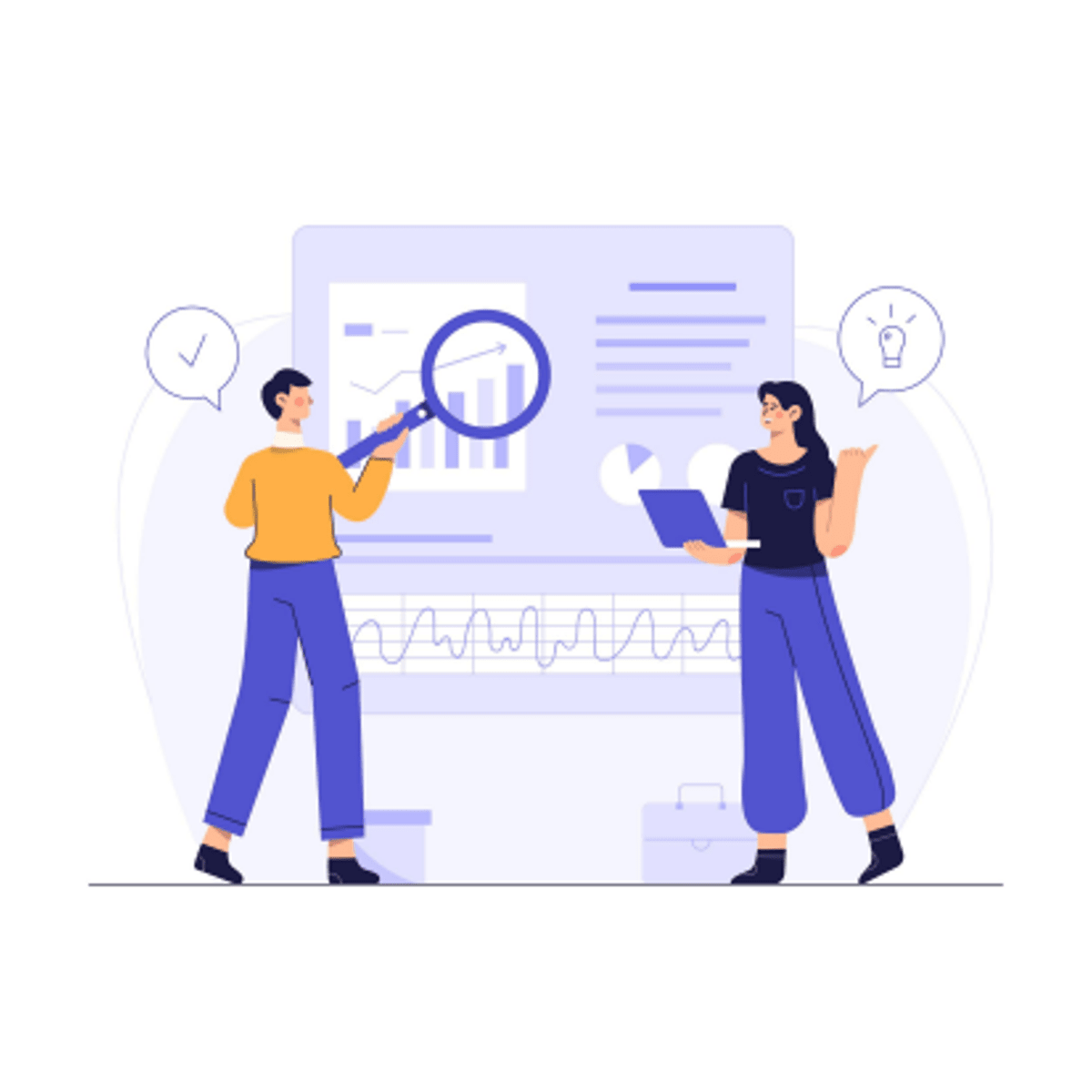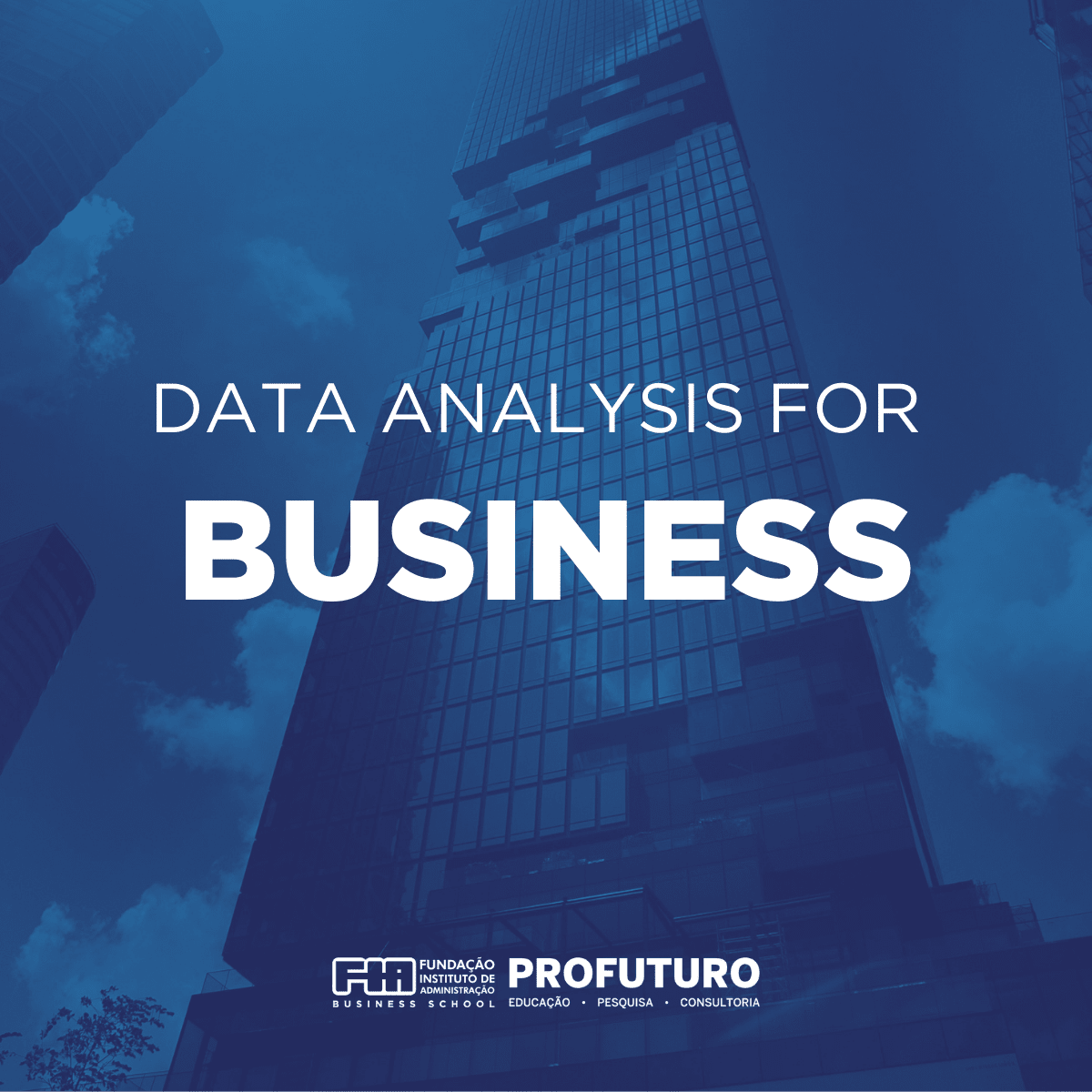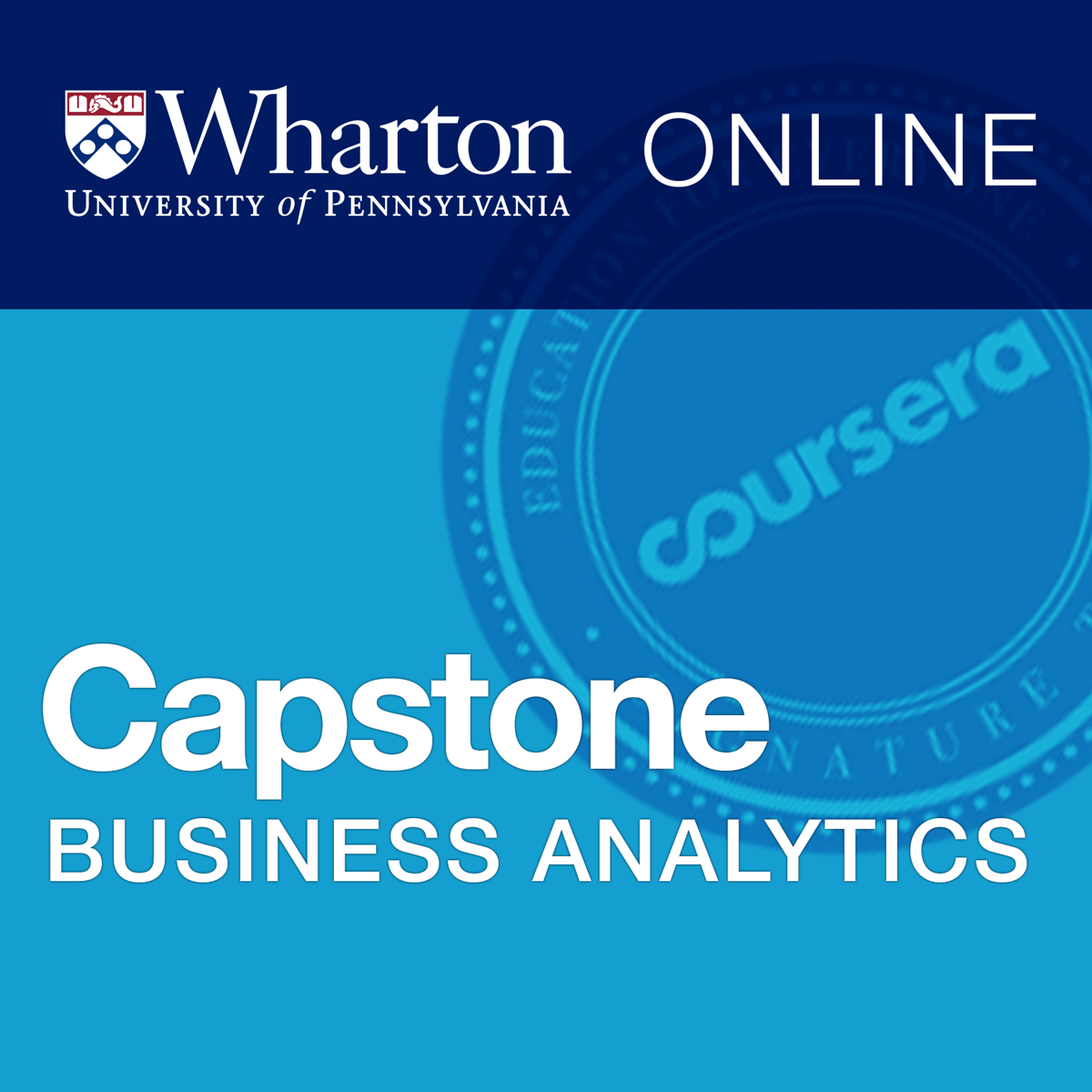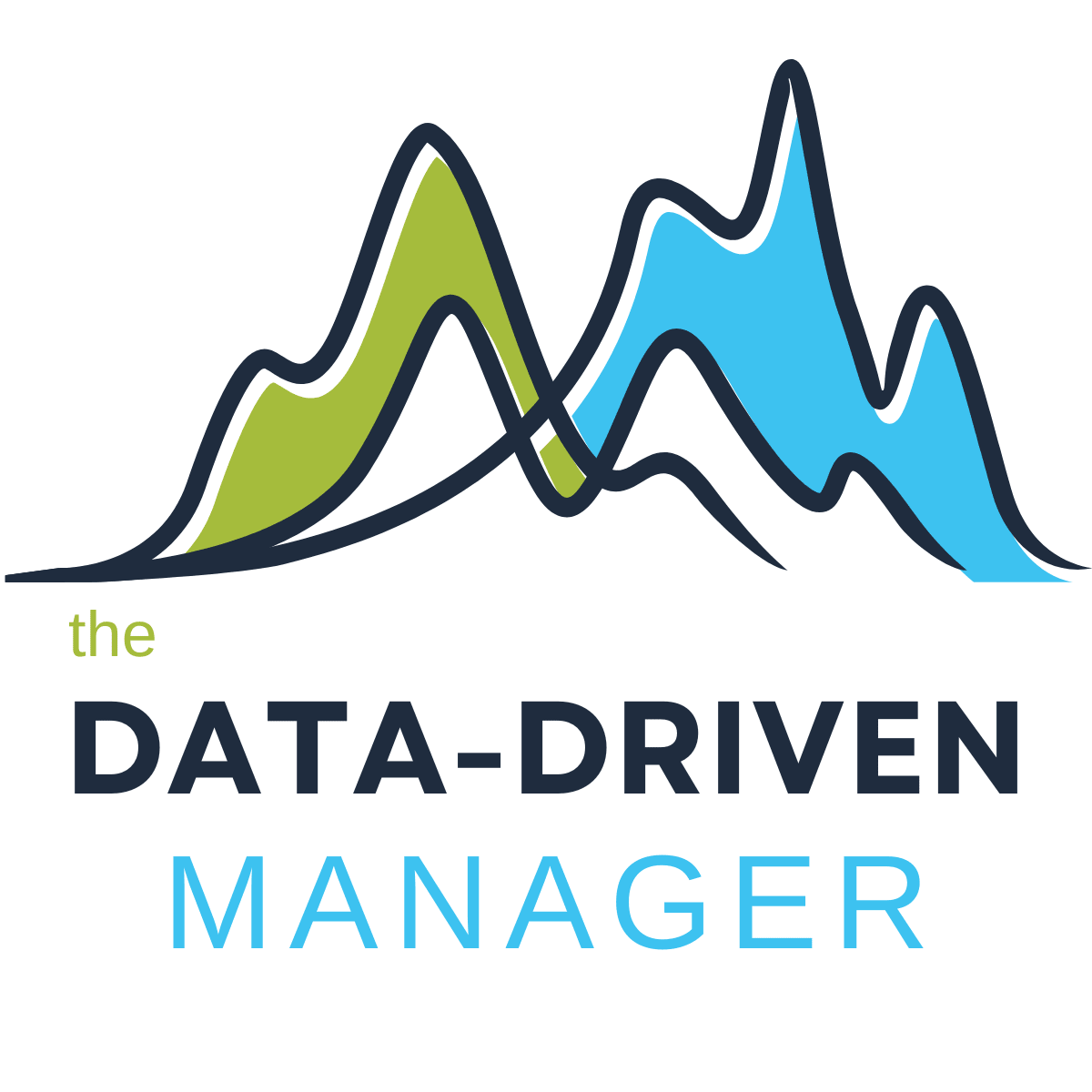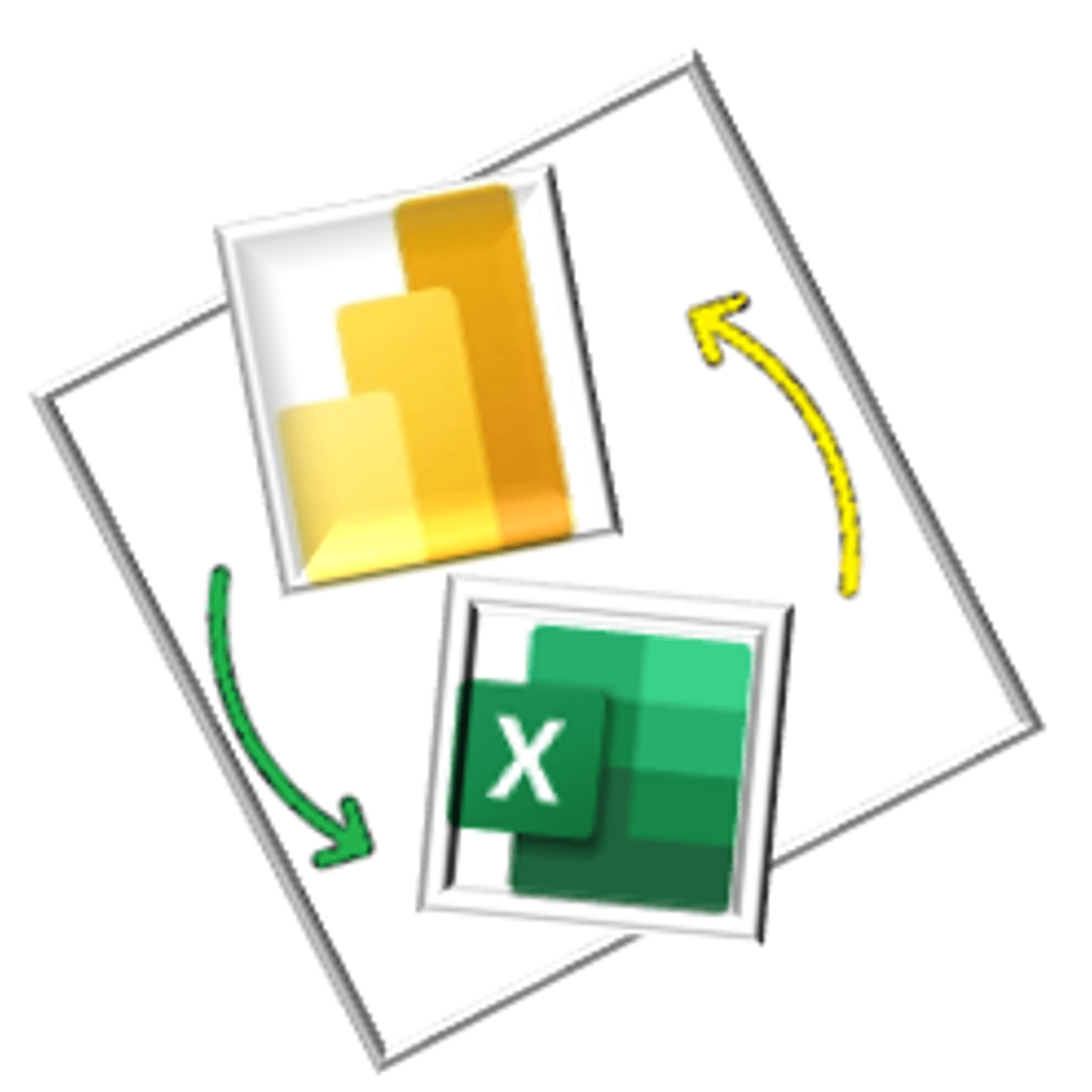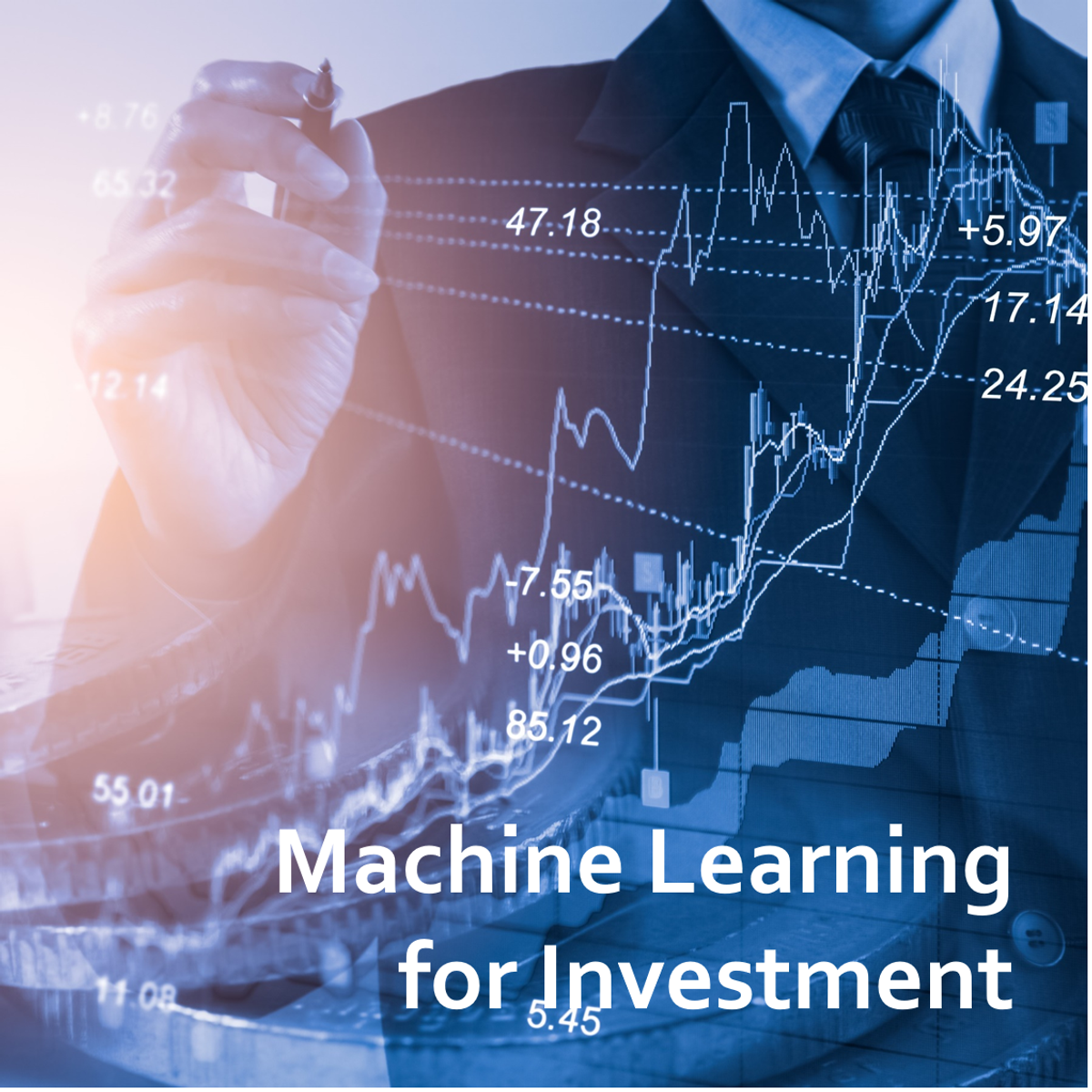Data-Driven Decision Making
Harnessing the Power of Data: An Introduction to Data-Driven Decision Making
Data-Driven Decision Making (DDDM) is the practice of using facts, metrics, and data to guide strategic business decisions that align with your goals, objectives, and initiatives. Instead of relying solely on intuition or past experiences, DDDM emphasizes the importance of collecting, analyzing, and interpreting relevant data to inform choices. This approach allows organizations and individuals to make more objective, evidence-based decisions, leading to improved outcomes and a clearer understanding of the potential impacts of those choices. Consider how streaming services like Netflix recommend shows; this is a prime example of DDDM, where your viewing history and preferences are analyzed to suggest content you're likely to enjoy.
Working with data to drive decisions can be an engaging and exciting prospect. One thrilling aspect is the ability to uncover hidden patterns and insights that can lead to significant breakthroughs or innovations within an organization. Imagine sifting through customer behavior data and identifying a previously unnoticed trend that, once addressed, dramatically improves customer satisfaction and loyalty. Furthermore, the process of transforming raw data into actionable strategies provides a tangible sense of accomplishment and impact. Finally, as DDDM becomes increasingly vital across all sectors, professionals skilled in this area find themselves at the forefront of innovation and strategic planning, often playing a key role in shaping the future direction of their organizations.
Introduction to Data-Driven Decision Making
This section will lay the groundwork for understanding what Data-Driven Decision Making truly entails. We will explore its fundamental concepts and see how it stands in contrast to more traditional ways of making choices. Furthermore, a brief look at its historical development will provide context on how DDDM has become a cornerstone of modern business and technology.
Defining Data-Driven Decision Making (DDDM) and Its Core Principles
At its core, Data-Driven Decision Making (DDDM) is a systematic approach that involves collecting relevant data, analyzing it to identify patterns and insights, and then using those insights to make informed choices. This process moves beyond simple data collection; it's about transforming raw information into actionable intelligence. The fundamental aim is to base decisions on empirical evidence rather than solely on gut feelings, anecdotal observations, or presuppositions. By doing so, organizations and individuals can increase the likelihood of achieving desired outcomes and can more accurately measure the success of their initiatives.
The core principles underpinning DDDM are objectivity, evidence-based reasoning, and an iterative mindset. Objectivity means striving to remove personal biases and preconceived notions from the decision-making process, letting the data speak for itself. Evidence-based reasoning is the commitment to finding and using the best available data to support conclusions and guide actions. This often involves rigorous analysis and a critical evaluation of the data's quality and relevance. Finally, an iterative mindset acknowledges that decisions are not always final; DDDM often involves continuous monitoring, learning from outcomes, and refining strategies based on new data and insights. This cyclical approach allows for adaptation and ongoing improvement.
A relatable example of DDDM in everyday life can be seen in how fitness apps and wearable technology influence personal health choices. These devices collect data on your activity levels, sleep patterns, heart rate, and more. By analyzing this data, the app might suggest you aim for a certain number of steps per day, adjust your bedtime for better sleep quality, or even alert you to potential health irregularities. Users then make decisions—like taking the stairs instead of the elevator or going to bed earlier—based on these data-driven recommendations, aiming to improve their overall well-being. This mirrors how businesses use data to refine their products, services, and operations.
To build a foundational understanding of how data informs leadership and decision-making, several online courses can be beneficial. These courses often explore the transition towards data-centric approaches in management.
Contrasting with Intuition-Based Decision Making
Intuition-based decision making relies heavily on "gut feelings," personal experience, instincts, and subjective judgments. It's often a quicker process, drawing on a decision-maker's accumulated wisdom and pattern recognition, which can be valuable in situations requiring rapid responses or where data is scarce. While intuition can sometimes lead to successful outcomes, especially when wielded by experienced individuals in familiar contexts, it is also susceptible to cognitive biases, emotional influences, and a lack of objective verification.
The primary contrast lies in the foundation of the decision: DDDM is rooted in verifiable facts and objective evidence derived from data analysis, whereas intuition is based on internal feelings and subjective interpretations. DDDM seeks to minimize uncertainty and risk by grounding choices in quantifiable information, allowing for more consistent and replicable results. Intuition, while potentially insightful, lacks this systematic, evidence-backed approach, making its outcomes less predictable and harder to justify or explain to others. According to a survey cited by PwC, organizations that are highly data-driven are three times more likely to report significant improvements in decision-making.
However, it's not always a case of one approach being inherently superior to the other in all circumstances. Many experts suggest that the most effective decision-making often involves a blend of both data and intuition. Data can provide the objective foundation and identify patterns, while intuition can help interpret ambiguous situations, generate hypotheses for data exploration, or make calls when data is incomplete or when facing highly novel situations. The key is to use data to inform and validate intuition, rather than letting intuition override contradictory evidence. As one source puts it, "while data can tell us what's happening, it doesn't always tell us why it's happening or what we should do about it. That's where intuition comes into play."
The following books delve deeper into the concepts of using data and analytics to make informed choices, which can be a valuable counterpoint or complement to relying solely on intuition.
Historical Evolution of DDDM in Business and Technology
The concept of using data to inform decisions is not entirely new; businesses have long used accounting records and basic market observations. However, the widespread adoption and sophistication of DDDM are relatively recent phenomena, largely propelled by technological advancements. In the mid-20th century, researchers began to formally describe decision-making as a complex, dynamic process where uncertainty and risk could be measured and mitigated. This laid the conceptual groundwork for more structured approaches.
The advent of computers in the 1970s marked a significant turning point, enabling computer-aided decision-making. Early techniques, however, were more focused on decision models like decision trees rather than extensive data analysis as we know it today. It was in the 1980s, with the arrival of commercial decision support systems, that data began to take a more central role in business decision-making. These systems allowed managers to query data and generate reports, albeit in a more limited fashion than modern tools.
The early 21st century witnessed an explosion in data availability, often termed "Big Data," driven by the internet, e-commerce, social media, and the proliferation of digital devices. Simultaneously, technologies like data warehousing and data mining expanded the potential for data analytics, allowing businesses to extract deeper insights from these vast datasets. This era saw the rise of more sophisticated analytical tools and the emergence of specialized roles focused on data analysis and interpretation. The focus shifted from simply reporting on past events to predicting future trends and prescribing optimal actions, making DDDM an indispensable component of competitive strategy for many organizations worldwide. Exploring Data Science courses on OpenCourser can provide a comprehensive understanding of these modern analytical techniques.
Key Techniques and Tools
To effectively practice Data-Driven Decision Making, one must be familiar with the various techniques for gathering and analyzing data, as well as the tools that facilitate these processes. This section delves into the common methods for data collection, introduces prevalent data analysis software, and provides a basic understanding of machine learning and predictive analytics, which are increasingly vital in deriving deep insights from data.
Overview of Data Collection Methods
Effective Data-Driven Decision Making begins with robust data collection. The methods used to gather data are diverse and depend heavily on the type of information needed and the context of the decision. One increasingly common method involves using Application Programming Interfaces (APIs). APIs allow different software systems to communicate and exchange data automatically. For example, a business might use an API to pull social media data to understand public sentiment about its brand or to gather market data from financial exchanges.
The Internet of Things (IoT) has emerged as another significant source of data. IoT refers to the network of physical devices, vehicles, home appliances, and other items embedded with electronics, software, sensors, actuators, and connectivity which enables these objects to connect and exchange data. From smart thermostats collecting usage patterns to industrial sensors monitoring machine performance, IoT devices generate vast streams of real-time data that can be invaluable for operational efficiency, predictive maintenance, and understanding user behavior.
Despite technological advancements, traditional methods like surveys and direct observation still play a crucial role, especially for gathering qualitative data or specific customer feedback. Surveys, now often conducted digitally, can be targeted to specific demographics to collect opinions, preferences, and behavioral information. Observational studies, whether in a physical retail environment or through website analytics tracking user navigation, provide insights into how individuals interact with products, services, or environments. The key is to choose collection methods that yield high-quality, relevant data appropriate for the decision at hand.
For those looking to deepen their understanding of how data is foundational to modern enterprises, these courses offer insights into data science and engineering, which are crucial for effective data collection and management.
Data Analysis Tools
Once data is collected, the next crucial step in DDDM is analysis, which involves inspecting, cleaning, transforming, and modeling data to discover useful information, draw conclusions, and support decision-making. A variety of powerful tools are available to aid in this process, catering to different needs and skill levels. These tools range from programming languages favored by data scientists for their flexibility and power, to user-friendly business intelligence platforms designed for broader accessibility.
For intricate statistical analysis, data manipulation, and developing custom algorithms, programming languages like Python and R are industry standards. Python, with its extensive libraries such as Pandas for data manipulation, NumPy for numerical computation, and Scikit-learn for machine learning, is highly versatile. R is specifically designed for statistical computing and graphics, offering a rich ecosystem of packages for a wide array of analytical tasks. Both are open-source, benefiting from large, active communities that contribute to their continuous development and provide ample support resources.
For data visualization and business intelligence, tools like Tableau and Microsoft Power BI are widely used. These platforms allow users to connect to various data sources, create interactive dashboards, and share insights across an organization, often with intuitive drag-and-drop interfaces. They empower business users, who may not have coding skills, to explore data and uncover trends. Learning how to effectively use such tools is a significant asset; OpenCourser features a variety of courses on software tools that can help build these skills.
These courses can help you get started with popular data analysis and visualization tools.
For a deeper dive into statistical analysis and its business applications, the following books are highly recommended.
Machine Learning and Predictive Analytics Basics
Machine learning (ML) is a subset of artificial intelligence that enables systems to learn from data and improve their performance over time without being explicitly programmed for each specific task. Instead of following a predefined set of instructions, ML algorithms identify patterns within large datasets, build models based on these patterns, and then use these models to make predictions or decisions on new, unseen data. Core concepts in ML include algorithms (the rules guiding data processing), training data (historical data used to teach the model), and predictions (outcomes generated by the model).
Predictive analytics is a branch of advanced analytics that uses historical data, statistical modeling, data mining techniques, and machine learning to make predictions about future outcomes or events. It aims to answer questions like "What is likely to happen?" or "What will be the impact of this change?". For instance, businesses use predictive analytics to forecast sales, identify customers at risk of churning, detect fraudulent transactions, or anticipate equipment failures. The synergy between ML and predictive analytics is powerful: ML algorithms enhance predictive analytics by improving the accuracy and adaptability of predictions through continuous learning.
Simple examples of machine learning in action include email spam filters, which learn to distinguish between legitimate emails and spam based on past examples, or product recommendation systems on e-commerce sites, which predict what other items a customer might like based on their browsing and purchase history. Understanding the basics of ML and predictive analytics is becoming increasingly important for anyone involved in DDDM, as these technologies unlock more sophisticated ways to extract value from data and anticipate future trends.
These courses provide an introduction to how machine learning and analytics are applied in business contexts.
The following book offers a comprehensive look into how predictive models are built and used.
Applications Across Industries
Data-Driven Decision Making is not confined to a single sector; its principles and techniques are revolutionizing practices across a multitude of industries. By leveraging data, organizations can gain deeper insights into their operations, customers, and market dynamics, leading to more effective strategies and improved outcomes. This section will explore specific case studies in healthcare, retail, and finance to illustrate the tangible impact of DDDM in diverse real-world settings, focusing on recent examples to highlight contemporary applications.
Case Studies in Healthcare (Patient Outcomes)
In healthcare, DDDM is profoundly impacting patient outcomes, operational efficiency, and medical research. By analyzing vast amounts of patient data, electronic health records (EHRs), medical imaging, and even data from wearable devices, healthcare providers can identify patterns and make more informed decisions. For instance, predictive analytics models are being developed to anticipate patient deterioration in intensive care units (ICUs), allowing for proactive interventions that can reduce mortality rates and shorten hospital stays. One partnership between UCSF Health and GE Healthcare utilized real-time data from EHRs and vital signs monitors to predict adverse events like sepsis, leading to notable improvements in patient results.
Another significant application is in personalized medicine. By analyzing a patient's genetic makeup, lifestyle factors, and medical history, clinicians can tailor treatment plans for greater efficacy and fewer side effects. For example, in cancer care, predictive models help identify patients most likely to respond to specific therapies, contributing to advancements in precision oncology. Geisinger Health System, for example, uses augmented intelligence and predictive analytics to streamline care coordination and enable early disease detection. The Cleveland Clinic has also successfully used predictive analytics to manage patient flow, reducing emergency department wait times and optimizing bed utilization.
Furthermore, data analytics is crucial for population health management, identifying at-risk groups, predicting disease outbreaks, and optimizing resource allocation. Hattiesburg Clinic showcases how technology and data-driven decision-making enable highly coordinated quality care within a value-based care model, leading to meaningful impacts on clinical outcomes and patient experience. These examples highlight how data is becoming an indispensable tool in enhancing the quality, efficiency, and personalization of healthcare delivery. You can explore more about this evolving field through Health & Medicine courses.
This course specifically examines the role of data in healthcare decision-making.
Retail (Inventory Optimization)
The retail sector has been an early and enthusiastic adopter of Data-Driven Decision Making, particularly in areas like inventory optimization, demand forecasting, and customer experience personalization. Accurate inventory management is critical for retailers to meet customer demand without overstocking, which ties up capital and increases holding costs. By analyzing historical sales data, seasonality, promotional impacts, and even external factors like weather patterns, retailers can develop sophisticated models to predict demand for various products at different locations.
For instance, major retailers use DDDM to ensure that popular items are always in stock, especially during peak seasons, while minimizing the risk of holding excess inventory for slower-moving products. This often involves real-time tracking of sales and inventory levels, coupled with predictive algorithms that can automatically trigger reorder points or suggest optimal stock transfers between stores. This not only improves profitability but also enhances customer satisfaction by reducing stockouts.
Beyond inventory, DDDM in retail extends to dynamic pricing strategies, where prices are adjusted based on demand, competitor pricing, and customer behavior. Recommendation engines on e-commerce platforms, similar to those used by Netflix, analyze browsing history, past purchases, and items viewed by similar customers to suggest products, thereby increasing conversion rates and average order values. Supply chain optimization, store layout planning, and targeted marketing campaigns are other areas where data analytics provides a significant competitive edge in the fast-paced retail environment. Many of these strategies are covered in Marketing courses available through OpenCourser.
This course focuses on applying data analysis to retail scenarios.
Consider these books for insights into how analytics drive marketing and business strategies, highly relevant to the retail sector.
Finance (Risk Assessment Models)
The finance industry, characterized by its inherent risks and vast datasets, heavily relies on Data-Driven Decision Making for critical functions such as risk assessment, fraud detection, algorithmic trading, and customer relationship management. Financial institutions utilize sophisticated models to evaluate creditworthiness, predict market fluctuations, and ensure regulatory compliance. For example, when an individual applies for a loan or credit card, banks use predictive models that analyze numerous data points—credit history, income, debt-to-income ratio, and other behavioral data—to assess the likelihood of default and determine appropriate lending terms.
In the realm of fraud detection, machine learning algorithms are trained to identify anomalous patterns in transaction data that may indicate fraudulent activity. These systems can flag suspicious transactions in real-time, preventing significant losses for both the institution and its customers. Similarly, algorithmic trading employs complex mathematical models and high-speed data analysis to execute trades at optimal prices and times, often capitalizing on fleeting market inefficiencies that would be impossible for human traders to exploit.
Furthermore, DDDM helps financial institutions understand customer behavior to offer personalized financial advice, targeted investment products, and improved customer service. By analyzing customer transaction data and interaction history, banks can identify life events (like buying a home or planning for retirement) and proactively offer relevant products and services. The ongoing analysis of market trends, economic indicators, and geopolitical events through a data-driven lens also informs broader investment strategies and portfolio management decisions. Professionals in this field often benefit from specialized training, such as that found in Finance & Economics courses.
This course is designed for those interested in applying data-driven approaches specifically within the finance domain.
This book explores decision-making theories that are fundamental to financial modeling and risk assessment.
Data Quality and Governance
The efficacy of Data-Driven Decision Making hinges critically on the quality of the data used and the governance structures in place to manage it. Poor data quality can lead to flawed analyses and misguided decisions, while weak governance can result in inconsistent data, security breaches, and non-compliance with regulations. This section explores the essential processes for ensuring data accuracy, the importance of ethical data usage and regulatory compliance, and the frameworks for managing master data effectively.
Data Cleaning Processes
Data cleaning, also referred to as data cleansing or data scrubbing, is the foundational process of identifying and rectifying errors, inconsistencies, and inaccuracies within raw datasets to enhance their quality and reliability. The objective is to ensure that data is accurate, complete, consistent, and ultimately usable for analysis and decision-making. Without meticulous data cleaning, organizations risk basing their decisions on flawed information, which can lead to costly mistakes and inefficient operations. This process is vital for maintaining the integrity of any data-driven operation.
Common data quality issues addressed during cleaning include duplicate records, missing values, outliers that deviate significantly from other observations, inconsistent formatting (e.g., for dates or addresses), and typographical errors. Techniques employed can range from simple rule-based corrections and standardization to more complex statistical methods for imputing missing data or identifying anomalies. Data cleaning is often distinguished from data transformation; cleaning focuses on fixing errors to improve quality, while transformation involves changing the structure or format of already clean data to make it suitable for analysis.
The importance of data cleaning cannot be overstated. It directly contributes to improved accuracy in analytical insights, enabling organizations to identify genuine trends and opportunities. Clean data is also essential for the success of machine learning models, as the adage "garbage in, garbage out" aptly applies; models trained on inaccurate or biased data will produce unreliable predictions. Effective data cleaning techniques streamline data processes and ensure that the information fueling decisions is trustworthy.
Courses focusing on data preparation and analysis often cover data cleaning as a fundamental step.
GDPR and Ethical Data Usage
Data governance encompasses the overall management of the availability, usability, integrity, and security of the data used in an organization. A critical aspect of data governance is ensuring compliance with data protection regulations and upholding ethical standards in data usage. The General Data Protection Regulation (GDPR), implemented by the European Union, is a landmark piece of legislation that has set a global standard for data privacy. It outlines strict rules for how organizations must collect, process, store, and protect the personal data of individuals within the EU.
The GDPR is built upon several key principles, including lawfulness, fairness, and transparency; purpose limitation; data minimization; accuracy; storage limitation; integrity and confidentiality; and accountability. Lawfulness means processing data only with a valid legal basis (e.g., consent, contractual necessity). Fairness requires that data is not used in ways that are misleading or harmful to individuals. Transparency mandates clear communication with data subjects about how their data is used. Purpose limitation means data should only be collected for specified, explicit, and legitimate purposes. Data minimization dictates collecting only necessary data.
Ethical data usage extends beyond mere legal compliance. It involves considering the potential societal impact of data practices, ensuring fairness, avoiding discrimination, and respecting individual autonomy. This includes being mindful of how data is collected (e.g., obtaining informed consent), how it is analyzed (e.g., guarding against bias in algorithms), and how it is shared. Organizations committed to ethical data usage build trust with their customers and stakeholders, which is increasingly a competitive differentiator. A strong data governance framework helps embed these ethical considerations and compliance requirements into an organization's daily operations.
Understanding data governance is crucial for anyone working with data. This course provides an introduction to data strategy and governance principles.
Master Data Management Frameworks
Master Data Management (MDM) is a discipline and technology-driven process that ensures an organization has a single, consistent, and accurate view of its critical data entities—often referred to as "master data." This master data includes information about customers, products, suppliers, locations, employees, and other core business elements that are shared and used across multiple systems and processes. The primary goal of MDM is to create a "single source of truth" for this essential data, eliminating inconsistencies and redundancies.
Without MDM, organizations often struggle with data silos, where different departments or systems maintain their own versions of the same data, leading to discrepancies, inefficiencies, and unreliable reporting. For example, a customer's address might be updated in the sales system but not in the billing system, leading to errors and poor customer experience. MDM frameworks address this by establishing processes and systems to collect, consolidate, cleanse, enrich, and synchronize master data across the enterprise. This often involves creating a central repository for master data that other applications can reference or draw from.
The benefits of implementing a robust MDM framework are numerous. It improves data quality, which leads to more accurate analytics and better-informed decision-making. It enhances operational efficiency by streamlining processes that rely on consistent data. MDM also supports regulatory compliance (e.g., GDPR) by providing better control and visibility over personal data. Furthermore, it facilitates initiatives like customer experience improvement, supply chain optimization, and successful mergers and acquisitions by ensuring that all stakeholders are working with the same reliable information.
These courses provide a broader view on analytics and strategy which often rely on well-managed master data.
This book provides insights on how organizations can effectively leverage their data assets, a process greatly enhanced by MDM.
Ethical Considerations
As Data-Driven Decision Making becomes more pervasive and powerful, particularly with the rise of Artificial Intelligence (AI), it is crucial to address the ethical implications that accompany these advancements. The way data is collected, analyzed, and used to make decisions can have profound societal impacts, raising concerns about fairness, bias, transparency, and accountability. This section will delve into the critical ethical challenges, such as algorithmic bias, the need for transparency in automated systems, and the real-world dilemmas highlighted by case studies like AI in hiring.
Algorithmic Bias Detection
Algorithmic bias occurs when a computer system reflects the implicit values of the humans who created it, or when it learns from data that is itself biased. This can lead to unfair or discriminatory outcomes, even if unintentional. For example, if an algorithm used for loan applications is trained on historical data that reflects past societal biases against certain demographic groups, the algorithm may learn to perpetuate those biases, unfairly denying loans to qualified applicants from those groups.
The consequences of biased algorithms can be severe, impacting individuals' access to opportunities in areas like employment, housing, credit, and even criminal justice. Detecting algorithmic bias is a complex challenge because biases can be subtle and deeply embedded in data or model structures. Methods for detection involve auditing algorithms for fairness, which can include statistical tests to see if the algorithm performs differently for different demographic groups, and examining the data used to train the model for pre-existing biases.
Mitigating algorithmic bias involves several strategies. These include using more diverse and representative datasets for training, developing fairness-aware machine learning algorithms that explicitly try to minimize disparities in outcomes, and implementing human oversight to review and override potentially biased decisions. Transparency in how algorithms are designed and trained is also crucial for identifying and addressing potential biases. As AI systems play an increasingly significant role in decision-making, ensuring their fairness and equity is a paramount ethical concern.
Understanding the societal impact of data is key. For those interested in broader applications of data, explore courses in Social Sciences where data ethics is often discussed.
Transparency in Automated Decisions
Transparency in automated decision-making, particularly in AI systems, refers to the ability to understand how an AI system arrives at its decisions or outputs. Many advanced AI models, especially those based on deep learning, can operate as "black boxes," where the internal workings and the exact reasons for a specific decision are not easily discernible, even to their creators. This lack of transparency can be problematic, especially when AI systems are used to make critical decisions that significantly impact individuals' lives, such as in medical diagnosis, loan approvals, or legal judgments.
The importance of transparency stems from several factors. Firstly, it is essential for building trust among users and stakeholders. If people cannot understand why an AI made a particular decision, they are less likely to trust or accept it. Secondly, transparency is crucial for accountability. If an AI system makes an error or produces a biased outcome, it is necessary to understand how that happened to assign responsibility and implement corrective measures. Thirdly, transparency can help in detecting and mitigating biases within the AI system, ensuring fairer outcomes.
Achieving transparency involves various approaches, including developing "explainable AI" (XAI) techniques that aim to make the decision-making processes of AI models more interpretable to humans. This can involve generating explanations for individual predictions, visualizing model behavior, or using simpler, more inherently transparent models where appropriate. Regulatory bodies are also increasingly emphasizing the need for transparency in AI, recognizing its role in ensuring ethical and responsible AI deployment.
The book "Human + Machine" explores the evolving relationship between humans and AI, touching upon themes of trust and understanding in automated systems.
Case Study: AI Hiring Tools and Fairness
The use of Artificial Intelligence in hiring processes has become increasingly common, with tools designed to automate tasks such as resume screening, candidate sourcing, and even initial interview assessments. Proponents argue that AI can make hiring more efficient, widen the talent pool, and potentially reduce human biases that can creep into manual review processes. However, the application of AI in hiring also raises significant ethical concerns, particularly regarding fairness and the potential for algorithmic bias.
If AI hiring tools are trained on historical hiring data that reflects past discriminatory practices (e.g., favoring candidates from certain demographics or educational backgrounds), the AI may learn and perpetuate these biases. This could result in qualified candidates being unfairly screened out, particularly those from underrepresented groups. For example, an AI trained on resumes of predominantly male employees in a specific role might inadvertently learn to penalize resumes with characteristics more common among female applicants, even if those characteristics are irrelevant to job performance.
Recognizing these risks, there is a growing emphasis on ensuring fairness in AI hiring tools. This includes efforts to audit these tools for bias, use more representative training data, and develop algorithms that are designed to promote fairness. Transparency about how these tools work and what criteria they use is also crucial. Regulations like the EU AI Act classify certain AI applications in employment as "high-risk," subjecting them to stringent requirements to ensure they are safe, fair, and respect fundamental rights. The EU AI Act, which entered into force in August 2024, will see its rules for general-purpose AI models become effective in August 2025, with full applicability for most high-risk systems by August 2026. This regulatory landscape underscores the societal demand for accountability and fairness when AI makes decisions that profoundly affect individuals' careers and livelihoods.
Educational Pathways
Embarking on a career that involves Data-Driven Decision Making, or enhancing existing skills in this area, requires a thoughtful approach to education and learning. The field is dynamic, with evolving tools and techniques, making continuous learning essential. This section outlines various educational pathways, from formal university programs to flexible online certifications and self-directed learning resources, helping aspiring professionals and career changers navigate their options and build the necessary expertise.
University Programs (Data Science, Business Analytics)
Formal university programs offer a structured and comprehensive route to acquiring the knowledge and skills necessary for roles centered around Data-Driven Decision Making. Degrees in fields like Data Science, Business Analytics, Statistics, Computer Science (with a data focus), and Management Information Systems are particularly relevant. Bachelor's programs typically provide foundational knowledge in mathematics, statistics, programming, and database management, along with an introduction to analytical techniques.
Master's programs often delve deeper into advanced topics such as machine learning, big data technologies, data visualization, and specialized applications of analytics in various industries (e.g., finance, healthcare, marketing). These programs usually include a blend of theoretical coursework, practical labs using industry-standard tools, and often a capstone project or thesis where students apply their learning to solve real-world problems. Such immersive projects are invaluable for building a portfolio and gaining hands-on experience.
Choosing a university program often involves considering factors like curriculum focus, faculty expertise, industry connections, and opportunities for internships or co-op placements. Many universities are adapting their curricula to meet the growing demand for data-savvy professionals, ensuring that graduates are equipped with both the technical competencies and the critical thinking skills to translate data into actionable insights. These programs not only build technical proficiency but also foster an understanding of the ethical considerations and strategic implications of data-driven approaches.
These university-level courses, available online, provide an excellent starting point or supplement to formal degree programs, covering business analytics and data-driven strategies.
Certifications
Professional certifications offer a flexible and often more targeted way to gain specific skills and credentials in the realm of Data-Driven Decision Making. They can be particularly valuable for individuals looking to specialize in a particular tool or methodology, for professionals seeking to upskill or pivot their careers, or as a supplement to formal academic qualifications. Many certifications are offered by technology vendors (e.g., Microsoft, Google, AWS, SAS) or industry organizations and focus on practical, job-ready skills.
Examples of popular certifications include those focused on specific data analysis tools like Microsoft Power BI or Tableau, cloud platforms like Amazon Web Services (AWS) which offer certifications in data analytics and machine learning, or Google's certifications in areas like data analytics and digital marketing (which includes Google Analytics). There are also vendor-neutral certifications that attest to broader competencies in data science, business intelligence, or data engineering.
Certifications can enhance a resume, demonstrate a commitment to continuous learning, and validate expertise in specific domains. When choosing a certification, it's important to consider its relevance to your career goals, the reputation of the certifying body, and the practical skills it covers. Many certifications require passing an exam and may involve hands-on projects or coursework. For those exploring this path, OpenCourser is an excellent resource for finding courses that prepare you for various certifications, allowing you to compare options and find learning paths that suit your needs. You can also check the OpenCourser Deals page for potential savings on certification courses.
These courses can help you gain valuable skills, some of which are aligned with industry-recognized certifications or platforms.
Self-Learning Resources
The landscape of self-learning resources for Data-Driven Decision Making is vast and continually expanding, offering incredible opportunities for individuals who are motivated and self-disciplined. Online learning platforms like Coursera, edX, Udemy, and others host thousands of courses covering every conceivable aspect of data analysis, data science, machine learning, and specific software tools. These courses range from introductory modules for beginners to advanced specializations taught by university professors and industry experts.
Beyond structured courses, resources like Kaggle offer a unique learning environment. Kaggle hosts data science competitions where participants can work with real-world datasets, test their skills against others, and learn from the approaches shared by top performers. It also provides datasets for practice, a platform for sharing code and analysis (kernels/notebooks), and forums for discussion. Blogs, tutorials, and documentation from software providers, industry experts, and academic institutions are also invaluable for staying current with new techniques and tools.
To make the most of self-learning, it's beneficial to create a structured learning plan, set realistic goals, and actively engage with the material through hands-on projects. Building a portfolio of projects that demonstrate your skills is crucial, especially when transitioning careers or seeking entry-level positions. OpenCourser can be an indispensable ally in this journey, allowing you to easily browse through thousands of courses in Data Science and related fields. You can save interesting options to a list using the "Save to list" feature, compare syllabi, and read summarized reviews to find the perfect online course that fits your learning style and career aspirations. The OpenCourser Learner's Guide also offers articles on topics like creating a structured curriculum and staying disciplined during self-learning.
These courses are excellent examples of self-paced learning options available online, covering foundational to more specific aspects of data-driven practices.
For those who prefer learning through reading, these books offer substantial knowledge for self-study.
Career Progression
A career in Data-Driven Decision Making offers diverse pathways and significant opportunities for growth. As organizations increasingly recognize the value of data in achieving their strategic objectives, the demand for professionals who can collect, analyze, interpret, and act upon data insights continues to rise. This section outlines typical career progression, from entry-level roles that build foundational skills to mid-career paths requiring deeper expertise, and ultimately to leadership positions that shape an organization's data strategy and culture.
Entry-Level Roles
Entry-level roles serve as the gateway into the world of Data-Driven Decision Making, providing essential hands-on experience and a chance to apply foundational knowledge. A common starting point is the role of a Data Analyst. Data Analysts are typically responsible for collecting, cleaning, and performing preliminary analysis of data. They generate reports, create visualizations, and identify initial trends or patterns that can help answer specific business questions. Their work often supports more senior analysts or decision-makers within a department.
Other entry-level positions might include Junior Data Scientist (often requiring a stronger background in statistics and machine learning), Business Intelligence Analyst (focusing on creating dashboards and reports for business users), or Market Research Analyst (specializing in customer and market data). The educational background for these roles usually involves a bachelor's degree in a quantitative field like statistics, mathematics, economics, computer science, or a business-related field with a strong analytical component. Proficiency in tools like Excel, SQL, and a data visualization tool (e.g., Tableau, Power BI) is often expected.
In these initial roles, individuals develop crucial skills in data handling, problem-solving, and communication. They learn how to translate business requirements into data questions and how to present their findings clearly. This stage is about building a solid understanding of data processes and how data contributes to business value. Success in an entry-level role often involves a proactive attitude, a willingness to learn new tools and techniques, and attention to detail.
These courses can help individuals prepare for entry-level data analysis roles by covering foundational skills and tools.
This is a key career path for those starting in the field.
Mid-Career Paths
As professionals gain experience and deepen their expertise in entry-level data roles, they typically progress to mid-career positions that involve greater responsibility, more complex analytical tasks, and a more strategic impact on the business. One of the most sought-after mid-career paths is that of a Data Scientist. Data Scientists go beyond descriptive analytics to develop predictive models, design experiments, and apply machine learning algorithms to solve challenging business problems. They often require advanced skills in programming (Python, R), statistical modeling, and machine learning techniques.
Other mid-career roles include Senior Data Analyst, where individuals take on more complex projects, mentor junior analysts, and contribute to analytical strategy. A Business Intelligence (BI) Developer or Architect focuses on designing and implementing BI solutions, data warehouses, and reporting systems. Specialists might emerge in areas like data engineering (building and maintaining data pipelines), data visualization expertise, or specific domains such as marketing analytics or financial modeling.
At this stage, professionals are expected not only to possess strong technical skills but also to have good business acumen and communication abilities. They need to understand the broader business context, translate complex findings into actionable recommendations for non-technical stakeholders, and often lead projects or small teams. Continuous learning remains vital, as the field evolves rapidly with new tools, techniques, and data sources. Many individuals pursue advanced degrees or specialized certifications to further their careers at this stage.
These courses are suitable for professionals looking to advance their skills in data science and analytics.
This career represents a common and aspirational mid-career role in the data field.
Leadership Positions
With significant experience and a proven track record of leveraging data to drive business value, professionals can advance into leadership positions within the realm of Data-Driven Decision Making. These roles involve setting the data strategy for the organization, building and managing analytical teams, and fostering a data-driven culture across different departments. A prominent leadership role is that of the Chief Data Officer (CDO), who is responsible for the organization's enterprise-wide data and analytics strategy, data governance, data quality, and data monetization.
Other leadership titles include Director of Analytics, Head of Data Science, VP of Business Intelligence, or similar roles depending on the organization's structure. Individuals in these positions typically shift from hands-on data analysis to focusing on strategic planning, resource allocation, stakeholder management, and championing the use of data in executive decision-making. They need to possess a strong understanding of both the technical aspects of data and the overarching business goals.
Essential skills for these leadership roles include strong business acumen, excellent communication and presentation skills, the ability to translate complex data insights into strategic imperatives, team leadership and development capabilities, and a visionary outlook on how data can transform the business. They play a crucial role in ensuring that data initiatives are aligned with business objectives, demonstrating the ROI of data investments, and navigating the ethical and regulatory landscape of data usage. These leaders are pivotal in embedding DDDM into the fabric of the organization.
This course is aimed at developing leadership capabilities in a data-driven context.
Future Trends and Challenges
The field of Data-Driven Decision Making is constantly evolving, shaped by technological advancements, changing business needs, and new societal considerations. Staying ahead requires an understanding of emerging trends and the challenges they may present. This section looks at some key developments on the horizon, including the rise of edge computing for real-time analytics, the potential long-term impact of quantum computing, and the growing use of climate data in Environmental, Social, and Governance (ESG) decisions.
Edge Computing and Real-Time Analytics
Edge computing is a distributed computing paradigm that brings computation and data storage closer to the sources of data generation – typically IoT devices, sensors, or local user devices. Instead of sending all data to a centralized cloud or data center for processing, edge computing allows for data to be processed locally, "at the edge" of the network. This significantly reduces latency, conserves bandwidth, and can enhance privacy and security by keeping sensitive data localized.
The implications for Data-Driven Decision Making are profound, particularly for applications requiring real-time analytics and rapid responses. In manufacturing, for example, edge devices can analyze sensor data from machinery in real-time to detect anomalies and predict potential failures, enabling immediate preventative maintenance and minimizing downtime. Autonomous vehicles rely heavily on edge computing to process vast amounts of sensor data instantaneously to make critical driving decisions. In retail, edge computing can power real-time personalized offers to customers in-store based on their behavior and location.
While edge computing offers significant advantages, it also presents challenges. Managing and securing a distributed network of edge devices can be complex. Ensuring data consistency and integrating insights from the edge with centralized analytics platforms requires careful architectural planning. However, as IoT deployments continue to grow and the demand for instantaneous insights increases, edge computing is set to play an increasingly vital role in enabling faster, more responsive data-driven decisions across various industries. For those interested in the technological underpinnings, Cloud Computing courses often touch upon edge architectures.
Quantum Computing's Potential Impact
Quantum computing is an emerging field of computation that leverages the principles of quantum mechanics to perform complex calculations far beyond the capabilities of classical computers. Unlike classical computers that store information as bits representing 0s or 1s, quantum computers use qubits, which can represent 0, 1, or a superposition of both simultaneously. This, along with quantum phenomena like entanglement, allows quantum computers to explore vast numbers of possibilities concurrently.
While still in its relatively early stages of development, quantum computing holds the potential to revolutionize areas that are currently constrained by computational limits. In the context of Data-Driven Decision Making, its impact could be transformative for problems involving optimization, complex simulations, and machine learning. For example, quantum algorithms could optimize supply chains on an unprecedented scale, discover new materials or drugs by simulating molecular interactions with high accuracy, or enhance machine learning models by processing and finding patterns in extremely large and complex datasets more efficiently.
However, significant challenges remain before quantum computing becomes mainstream. Building stable, large-scale quantum computers is technically demanding, and developing quantum algorithms for specific problems is an active area of research. The widespread impact on everyday DDDM is likely still some years away. Nevertheless, its long-term potential to solve currently intractable problems means that organizations, particularly in research-intensive fields, are beginning to explore its possibilities and prepare for a future where quantum-enhanced analytics could provide a significant competitive advantage.
Climate Data for ESG Decisions
Environmental, Social, and Governance (ESG) factors are increasingly at the forefront of business strategy and investment decisions. Stakeholders, including investors, customers, employees, and regulators, are demanding greater transparency and accountability from organizations regarding their environmental impact, social responsibility, and corporate governance practices. Data-Driven Decision Making is becoming essential for organizations to effectively manage, measure, and report on their ESG performance.
Climate data, in particular, plays a crucial role in the "Environmental" aspect of ESG. This includes data on greenhouse gas emissions, energy consumption, water usage, waste generation, deforestation, and vulnerability to climate-related physical risks (e.g., floods, wildfires). Organizations are using this data to set emission reduction targets, invest in renewable energy, develop more sustainable products and supply chains, and assess and mitigate climate-related risks to their operations and assets.
The challenges in using climate data for ESG decisions include data availability, quality, and standardization. Methodologies for measuring and reporting ESG metrics are still evolving. However, advancements in satellite imagery, sensor technology, and data analytics are improving the ability to collect and analyze relevant climate data. According to sources like Gartner's Hype Cycle, which often tracks emerging technologies and their applications, analytics related to sustainability and ESG are gaining prominence. Data-driven insights are critical for companies to not only comply with emerging ESG regulations and reporting standards but also to identify opportunities for innovation, enhance brand reputation, and build long-term resilience in a changing world. Exploring Environmental Sciences courses can provide foundational knowledge in this area.
This course specifically addresses the use of data in sustainability efforts.
FAQs: Career Insights
Navigating a career in Data-Driven Decision Making can bring up many questions, especially for those new to the field or considering a transition. This section addresses some common inquiries, offering insights into educational requirements, career shifts, industry demand, work environments, essential skills, and the impact of emerging technologies like AI on data-related jobs.
Do I need a PhD for senior DDDM roles?
While a PhD can be advantageous for certain highly specialized or research-oriented senior roles in Data-Driven Decision Making, particularly in areas like advanced machine learning research or cutting-edge algorithm development, it is generally not a strict requirement for most senior leadership positions. Many successful leaders in data and analytics, including Chief Data Officers (CDOs) or VPs of Analytics, have master's degrees, MBAs with a quantitative focus, or extensive industry experience coupled with a strong portfolio of impactful work.
For many senior roles, practical experience, a proven ability to translate data insights into business value, strong leadership and communication skills, and strategic thinking are often valued as highly as, if not more than, the specific level of academic degree. A PhD might be more common or expected in R&D departments of large tech companies or in academic-style research roles within industry.
Ultimately, the necessity of a PhD depends on the specific role, industry, and company culture. For individuals aiming for senior positions focused on strategy, team leadership, and applying existing data science methodologies to business problems, a master's degree combined with substantial experience is often sufficient. However, if your ambition is to push the boundaries of data science theory or lead highly technical research teams, a PhD could be a significant asset.
How to transition from traditional business roles to DDDM?
Transitioning from a traditional business role (e.g., in marketing, finance, operations) into a more data-focused DDDM role is a common and achievable career path. The key is to systematically build relevant skills, gain practical experience, and effectively showcase your analytical capabilities. Start by identifying the data-related aspects of your current role or industry that interest you most. This will help you target your learning.
Acquiring foundational skills in data analysis is crucial. This often includes proficiency in tools like Excel for data manipulation and basic analysis, SQL for database querying, and a data visualization tool such as Tableau or Power BI. Online courses, bootcamps, and certifications are excellent resources for learning these skills. Platforms like OpenCourser offer a wide array of Business courses and Data Science courses that can facilitate this transition. Consider pursuing projects, even small ones within your current company or personal projects, where you can apply these new skills to solve real problems and build a portfolio.
Networking with professionals already in DDDM roles can provide valuable insights and potential opportunities. Highlight your existing business acumen and domain knowledge from your traditional role, as this is a significant asset. Frame your experience in terms of how you've used information (even if not formally "data") to make decisions or improve processes. Emphasize your ability to understand business problems, a skill that is highly valued in data roles. A gradual transition, perhaps by taking on more data-related responsibilities in your current position or seeking an internal transfer, can also be an effective strategy.
These courses are designed to help professionals integrate data-driven approaches into their work, which is useful for those transitioning into more analytical roles.
Top industries hiring DDDM professionals in 2025
The demand for professionals skilled in Data-Driven Decision Making is strong across nearly every industry. However, some sectors are particularly aggressive in their hiring due to the transformative potential of data within their operations. As of early 2025, key industries with high demand include Technology, Finance and Insurance, Healthcare, Retail and E-commerce, and Consulting.
The Technology sector, encompassing software companies, hardware manufacturers, and internet services, remains a primary employer of data professionals for product development, user experience optimization, and operational efficiency. Financial services leverage data extensively for risk management, fraud detection, algorithmic trading, and customer analytics. The Healthcare industry is increasingly reliant on data for improving patient outcomes, managing costs, and advancing medical research, leading to a surge in demand for healthcare data analysts and scientists.
Retail and E-commerce businesses heavily utilize DDDM for inventory management, supply chain optimization, personalized marketing, and understanding customer behavior. Consulting firms also hire a significant number of data professionals to help clients across various industries implement data strategies and solve complex business problems. Other sectors showing strong growth in data-related hiring include manufacturing (for smart factories and predictive maintenance), entertainment (for content personalization), and the public sector (for policy analysis and service optimization). The versatility of data skills means that opportunities are widespread and continually expanding.
Remote work trends in data careers
Remote work has become a significant and likely enduring trend in many professions, and data-related careers are no exception. Many tasks involved in data analysis, data science, and data engineering can be performed effectively from a remote location, provided there is access to necessary data, tools, and communication platforms. This has opened up a wider talent pool for companies and provided greater flexibility for employees.
Companies, especially in the tech sector and those with a strong digital infrastructure, have increasingly embraced remote or hybrid work models for their data teams. This allows them to recruit top talent regardless of geographical location. For data professionals, this can mean more job opportunities, reduced commute times, and a better work-life balance. However, effective remote work in data roles often requires strong self-discipline, excellent communication skills to collaborate with distributed teams, and a suitable home office environment.
While the trend towards remote work is strong, some companies may still prefer in-office or hybrid arrangements, particularly for roles requiring close collaboration with physical infrastructure, highly sensitive data, or for fostering team cohesion through in-person interaction. The prevalence of remote opportunities can vary by industry, company size, and specific job function. Job seekers interested in remote work should actively look for remote-friendly positions and be prepared to discuss their ability to work effectively in a distributed environment during interviews. Many job boards now feature filters specifically for remote positions, making the search easier.
Essential soft skills for DDDM success
While technical skills are foundational for Data-Driven Decision Making, soft skills are equally crucial for success and career advancement. These skills enable professionals to translate complex data insights into understandable and actionable recommendations, collaborate effectively with diverse teams, and influence organizational change. One of the most important soft skills is communication. This includes the ability to clearly explain technical concepts to non-technical audiences, present findings persuasively, and write concise and informative reports.
Critical thinking and problem-solving are also paramount. Data professionals need to go beyond just crunching numbers; they must understand the underlying business problems, formulate relevant questions, critically evaluate data sources and analytical results, and develop creative solutions. Curiosity and a desire to learn continuously are vital in a rapidly evolving field. The tools, techniques, and data sources are always changing, so a proactive approach to learning is essential.
Business acumen, or understanding the broader context of the business and its objectives, allows data professionals to align their work with strategic goals and deliver more impactful insights. Collaboration and teamwork are important as data projects often involve working with people from different departments and with varying levels of data literacy. Finally, storytelling with data—the ability to weave a compelling narrative around data insights to engage and persuade stakeholders—is an increasingly valued skill that can differentiate a good analyst from a great one.
These courses emphasize aspects of leadership and strategic thinking which are underpinned by strong soft skills.
Impact of AI tools on entry-level data jobs
The rise of sophisticated AI tools, including generative AI and AutoML (Automated Machine Learning) platforms, is undoubtedly transforming the landscape of data analytics, and this has implications for entry-level jobs. AI can automate many routine and time-consuming tasks traditionally performed by junior analysts, such as data cleaning, basic data preparation, generating descriptive statistics, and even creating initial visualizations. This automation can increase efficiency and allow analysts to focus on more complex and strategic work.
However, this automation also means that some tasks that once formed the bulk of entry-level work may be reduced or changed. According to a World Economic Forum report, while technology like AI is projected to create millions of jobs, it will also displace others, with some estimates suggesting AI could replace a significant portion of tasks in roles like market research analysts. This doesn't necessarily mean the elimination of entry-level roles altogether, but rather an evolution in the skills required. Entry-level professionals will increasingly need to work alongside AI tools, leveraging them to enhance their productivity and focusing on areas where human skills remain critical, such as interpreting AI outputs, understanding business context, communicating insights, and ensuring ethical considerations.
Aspiring data professionals should therefore focus on developing strong foundational knowledge, critical thinking skills, and an understanding of how AI tools can be effectively utilized. The ability to ask the right questions, validate AI-generated results, and translate those results into business actions will be highly valued. Rather than viewing AI as purely a threat, it can be seen as a powerful assistant that augments human capabilities, allowing even entry-level analysts to tackle more interesting and impactful problems sooner in their careers.
This course helps learners understand how Generative AI can be used for analytics, which is relevant to the evolving skill set for data professionals.
Conclusion
Data-Driven Decision Making is more than a methodology; it's a transformative approach that empowers individuals and organizations to navigate complexity with greater clarity and confidence. By grounding choices in evidence, embracing analytical rigor, and fostering a culture of continuous learning, the path of DDDM leads to more informed strategies, optimized outcomes, and sustained innovation. While the journey requires dedication to acquiring both technical and soft skills, and an adaptability to evolving technologies, the ability to harness the power of data is an increasingly indispensable asset in virtually every field. Whether you are just beginning to explore this domain or seeking to deepen your expertise, the pursuit of data-driven insights offers a rewarding and impactful career trajectory in our increasingly interconnected and data-rich world. OpenCourser provides a vast array of resources, from browsing courses by topic to in-depth articles on its OpenCourser Notes blog, to support learners at every stage of their journey into Data-Driven Decision Making.






